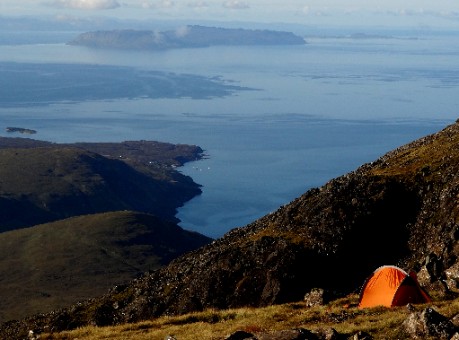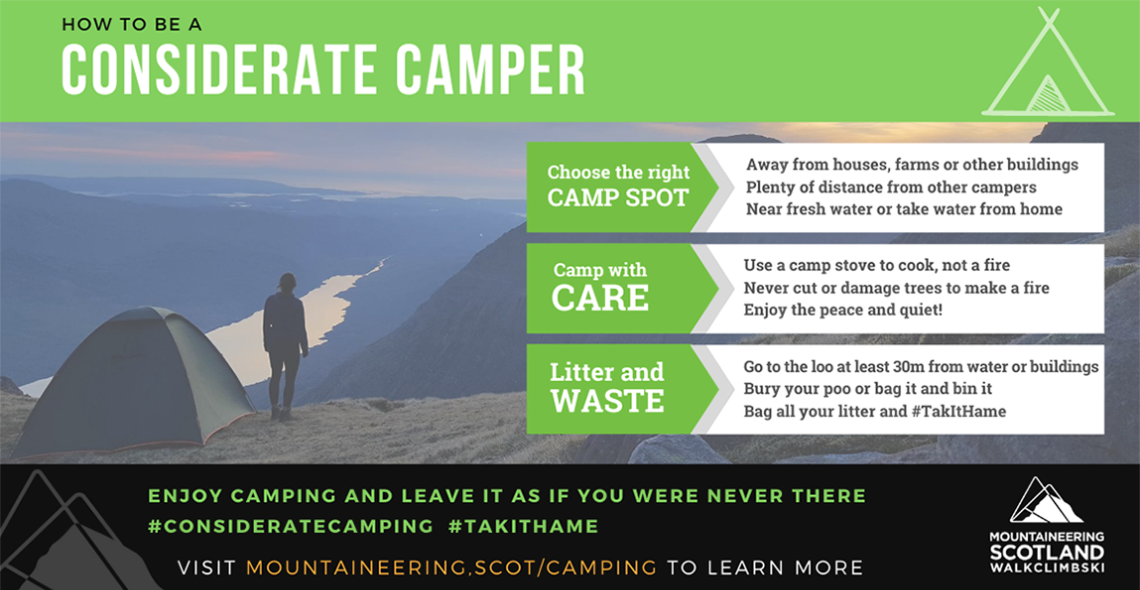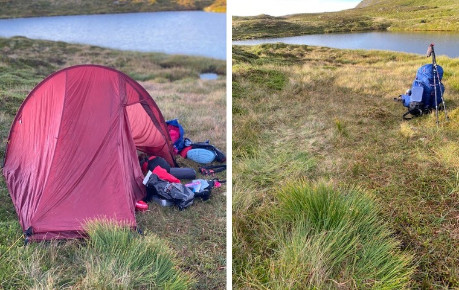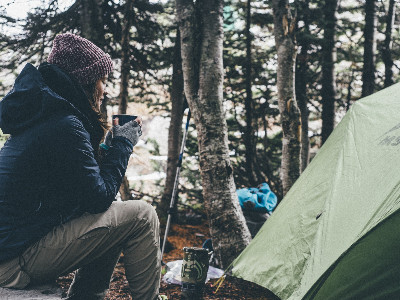The Land Reform (Scotland) Act 2003 establishes a statutory right of access to land for recreational purposes, with the Scottish Outdoor Access Code including wild camping as an activity coming under these access rights. SOAC also describes the responsibilities and best practice guidance that should be followed when exercising your right to camp wild, for example not camping in enclosed fields of crops or farm animals.
Camping can be an adventure and is a great way to enjoy the outdoors, but newcomers to camping may be confused by different names for styles of camping, with the term 'wild camping' often used to refer to any form of camping outside an organised campsite. For clarity, we have split camping outwith a campsite into two categories: 'wild camping' and 'roadside camping'.
Mountaineering Scotland's position statement on wild camping can be read here.
Wild camping is done well away from roads and buildings, is lightweight, done in small numbers and only for a few nights at most in any one place.
Wild camping has a more adventurous ring to it than roadside camping or staying on a campsite, and for many it is the only true form of camping.
Roadside camping is not usually considered wild camping, although it does take place and is lawful. Following our considerate camping guide below to reduce the impact from informal roadside camping.

Wild camping photo by Alistair Young.

With a bit of planning and thought, camping responsibly should leave your camping place so the next person would not even know you have been there!
Be a considerate camper and think about the following:
You can share your photos of considerate camping with us using the hashtags #ConsiderateCamping and #TakItHame
#TakItHame is our anti-littering campaign. Our message is simple - if we donít pick up our litter, who will?

Considerate camping: before and after. Photo by Debbie Parker.



Camping stoves cook food quickly, efficiently and cleanly and are to be preferred to campfires. A stove is light, easy to pack away and carry. Make sure you have spare fuel with you.
Camping stoves donít cause environmental damage whereas camp fires can easily scorch the ground and damage grass, heather and trees, sometimes leading to wildfires that burn woods and hillsides, especially in dry weather.


Mountaineering Scotland campaigns on behalf of Scotland's hill walkers, climbers, mountaineers and ski tourers, with over 16,000 members from all walks of life.
Membership of Mountaineering Scotland supports the work we do, from campaigning and protecting mountain landscapes and access, to promoting skills, responsible access and self-reliance for those who visit Scotland's hills, crags and climbing walls.
Membership is excellent value at less than £3 a month for adults, and includes public and civil liability insurance, a range of member discounts and offers, access to great value mountain skills courses, Scottish Mountaineer magazine and more. Read more about our membership benefits.